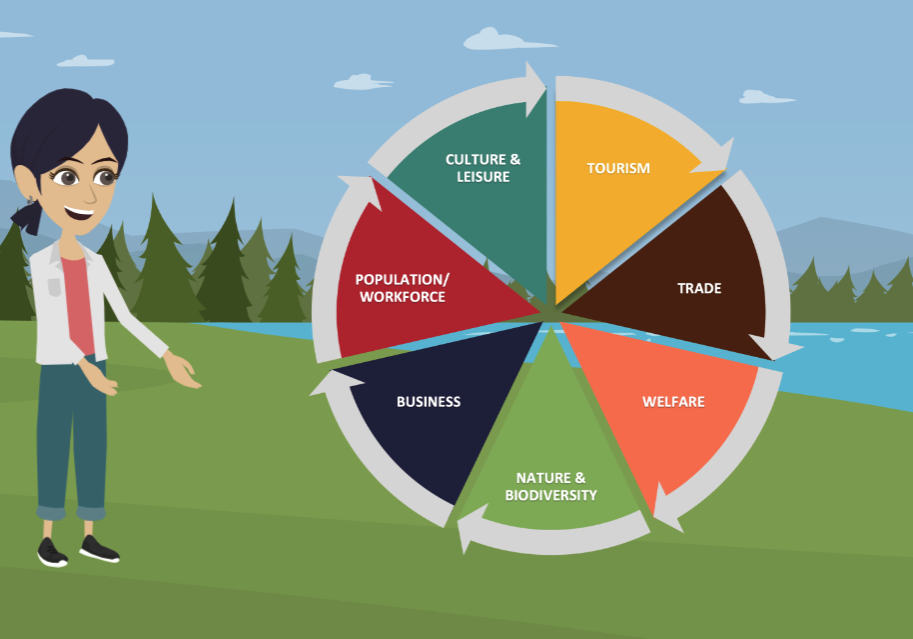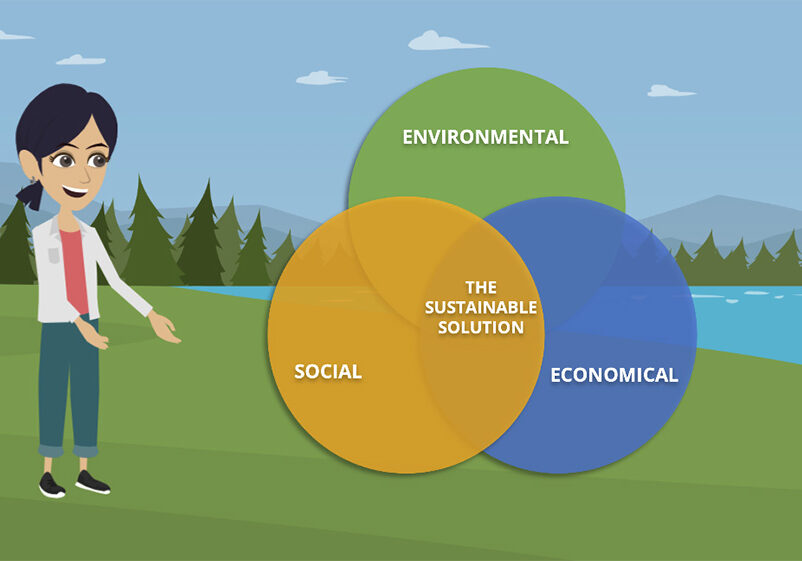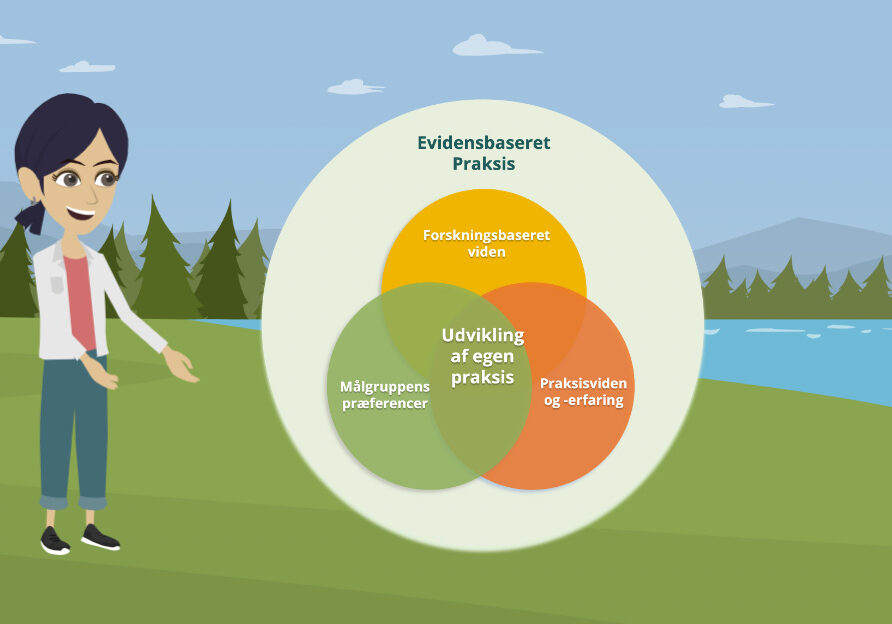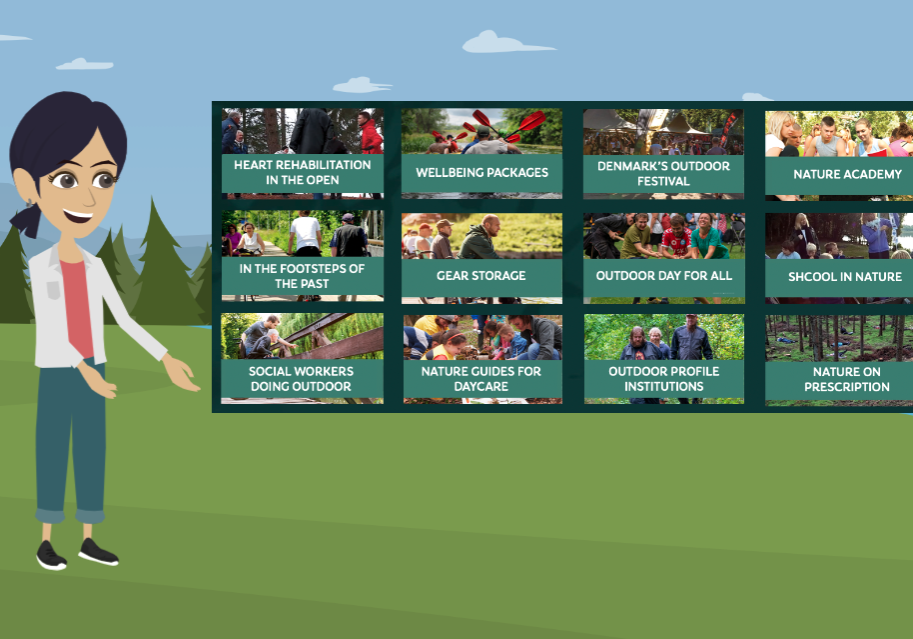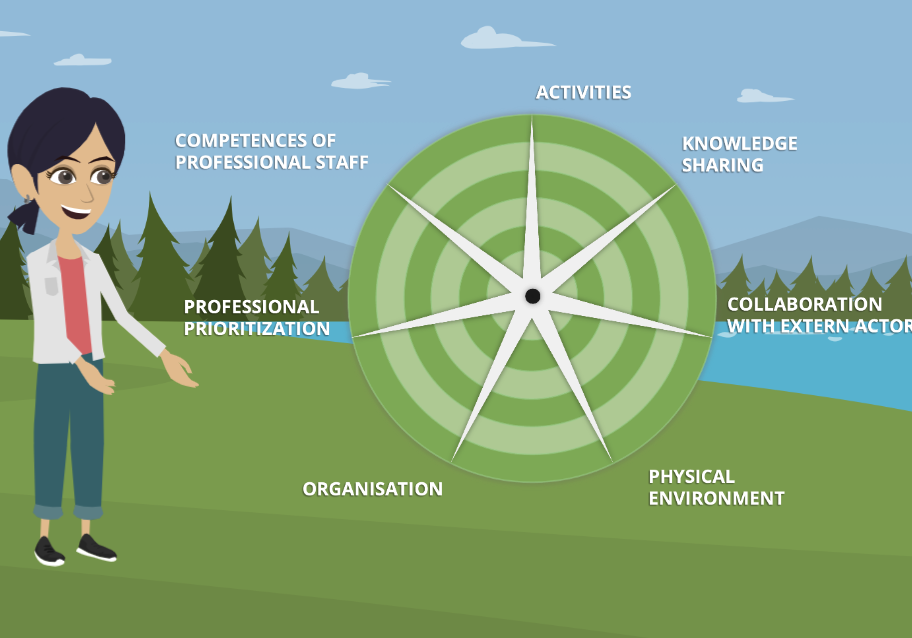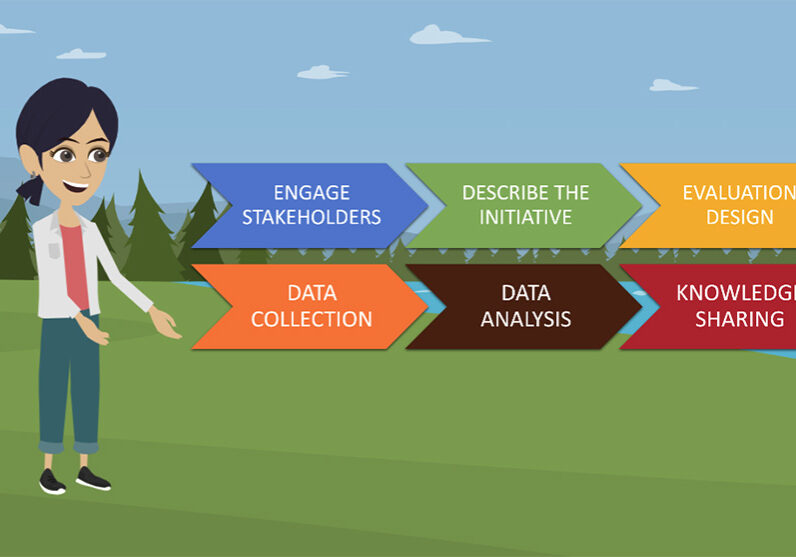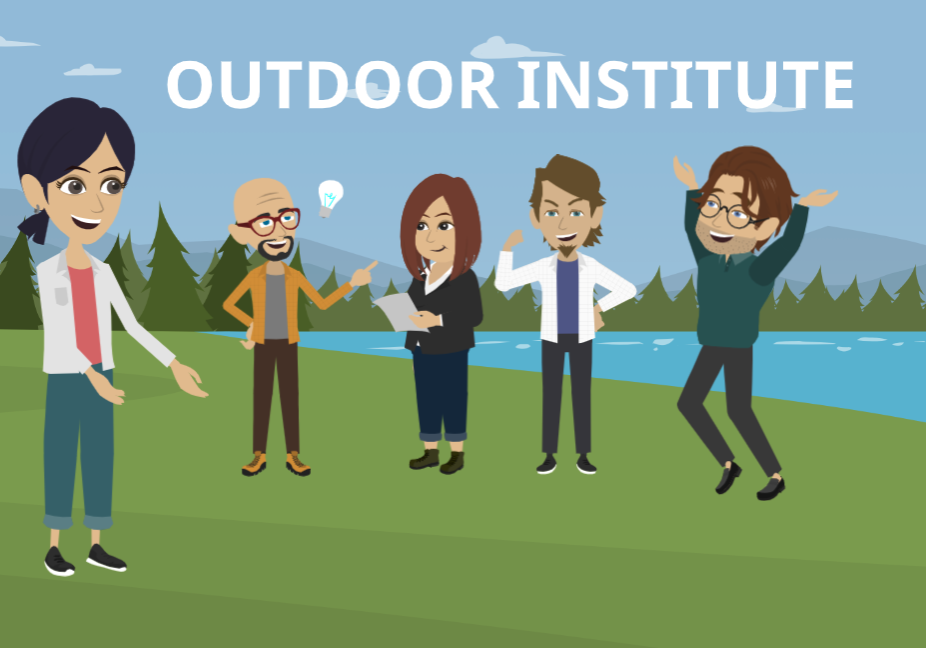Social- and health workers & the use of outdoor
Can increased use of institutions' outdoor spaces create a better working environment and better quality of work?
Care work in Denmark is challenged. It is difficult to recruit social and health workers for nursing homes and pedagogues for kindergartens, and both social workers and pedagogical education lack students.
The working environment for social workers and teachers is often both physically and mentally demanding, and the professions have long periods of sick leave.
Social and health workers and educational staff are among the job groups where most employees experience body pain several times a week due to the physically demanding work. At the same time, this job group experiences high emotional demands at work and work-related stress, which can increase the risk of long-term sickness absence.
Sick leave can be concretely seen in measurements from the Danish Working Environment Authority, where sick leave among social workers is significantly higher than the average sick leave (Work Environment and Health 2012-2018)
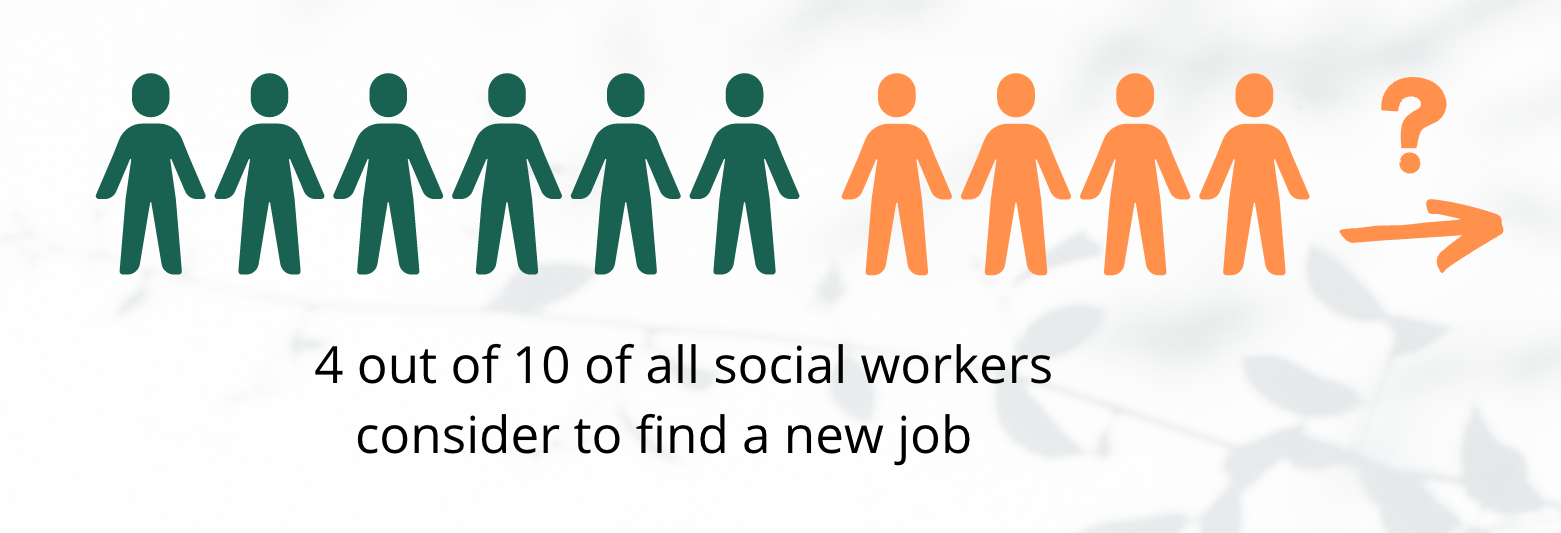
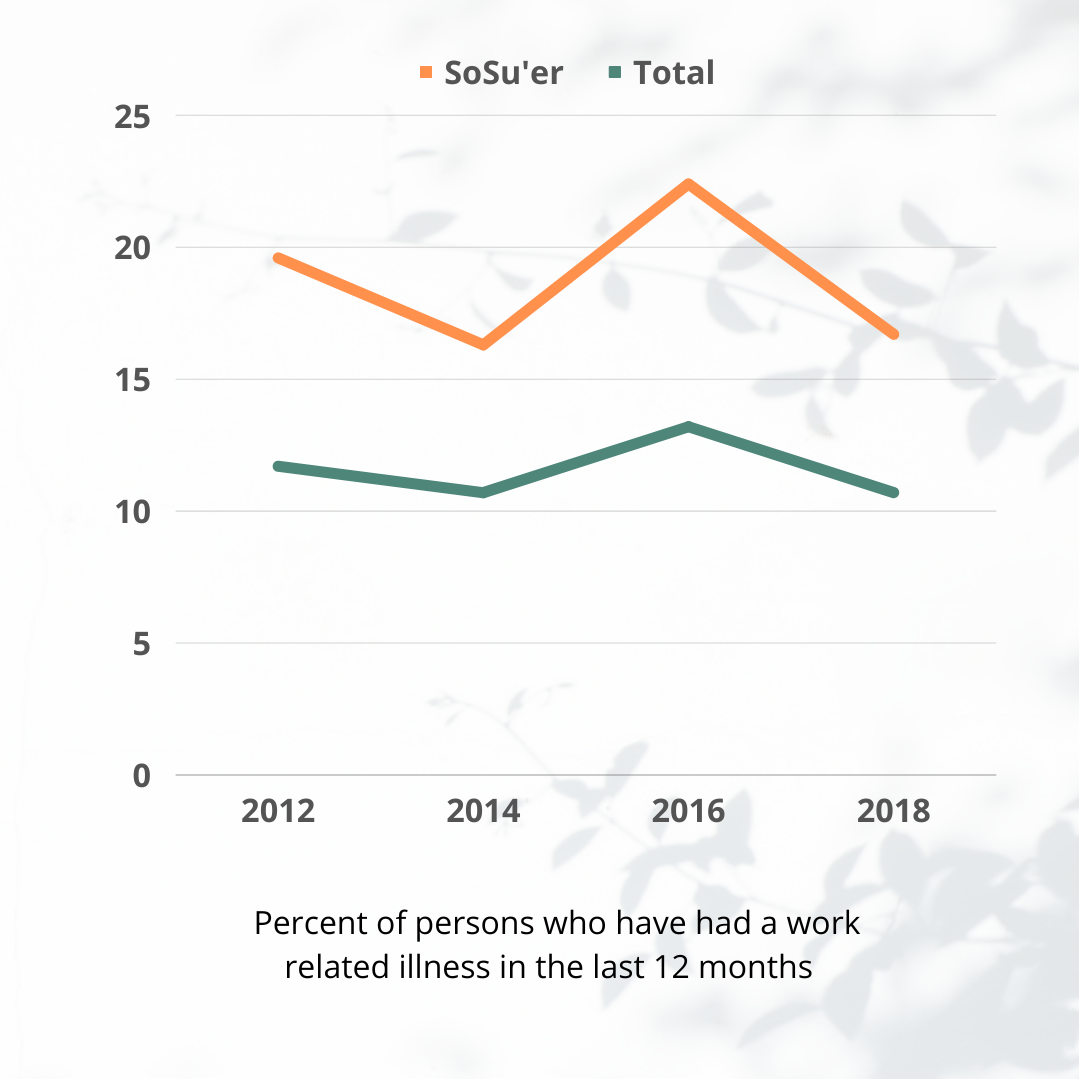
Why should we move outdoors?
In recent years, research has focused on the importance of corporate outdoor spaces for employee health and well-being.
In Malmö, 58 municipal employees took part in the Stick Ut Malmö project, moving a range of work activities outdoors.
The project showed a number of positive consequences of working outdoors, including increased general well-being, balancing stress symptoms, better communication and social relations, increased concentration and sense of empowerment.
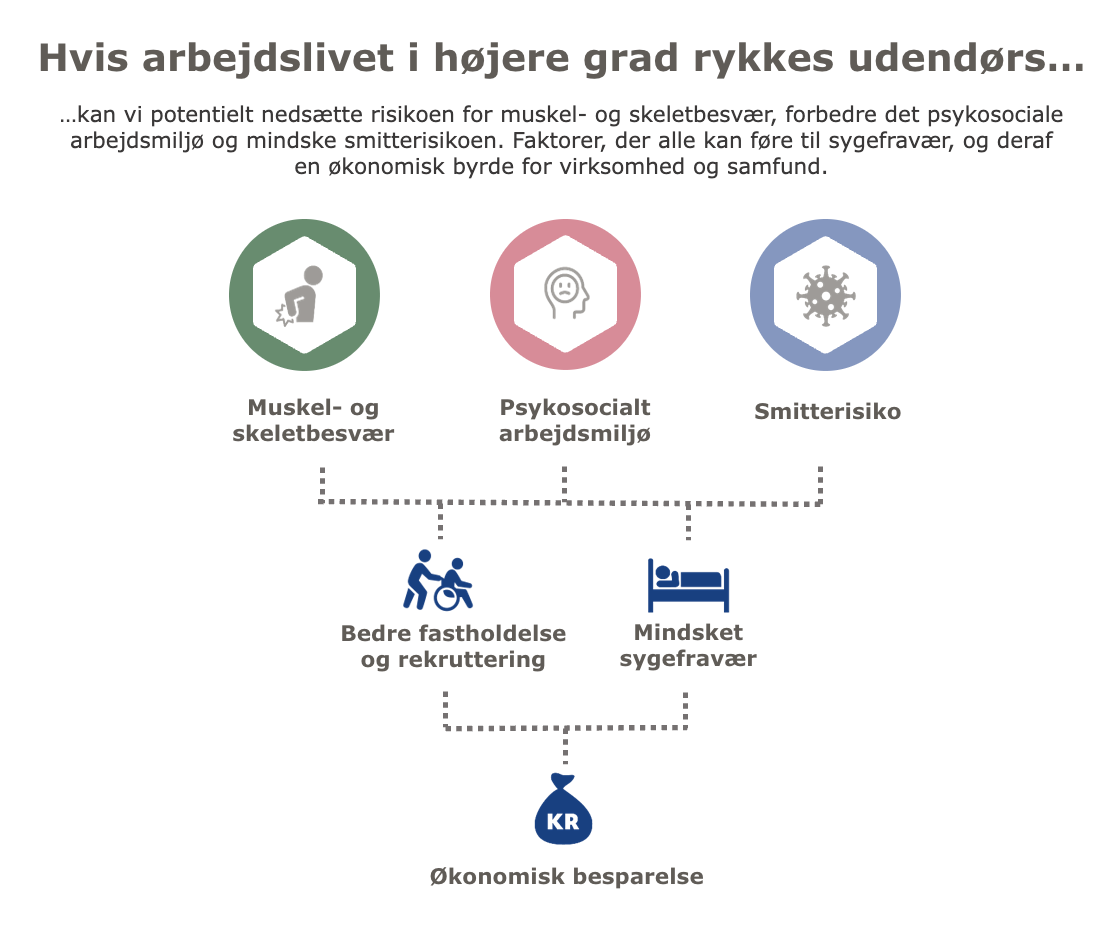
Positive effects of using outdoor spaces and nature in work
Better mental health
Green outdoor spaces can play an important role both in preventing mental health challenges and in restoring mental balance after, for example, severe stress (Pouso et al., 2020; Bratman et al., 2019; Marcus & Sachs, 2014).
Better relationships
Outdoor work activities can improve communication among employees and lead to the experience of more equal relationships and better cohesion (Troije et al., 2021).
Increased physical activity
Outdoor physical activity during working hours increases employees' physical activity levels (self-reported) and intentions for more physical activity in the future (Gritzka et al., 2021).
Increased concentration
Access to green outdoor spaces and outdoor physical activity during working hours can reduce fatigue at the end of the working day and increase concentration (de Bloom et al., 2017; Sianoja et al., 2018)
Case: Outdoor space in the Core Task in Silkeborg Municipality
Can an increased use of institutions' outdoor spaces create a better working environment and better quality of work? This is the opinion of Susanne Ryttergård Vindum, manager of Fuglemosen Care Centre:
"It is really important that we include the outdoor area as part of our core task, it benefits both the citizens, but it also benefits the staff. ... It also gives a better working environment for the staff because they actually feel more successful."
A structured mapping of opportunities and barriers will help to clarify whether increased use of outdoor activities can help to reduce sickness absence among social and health care workers and educational staff.
As described in the video, a feasibility study in the municipality of Silkeborg indicates opportunities and barriers to the inclusion of outdoor space in the core task.
The feasibility study was conducted by the National Research Centre for Working Environment (NFA) in collaboration with the Outdoor Institute, Sundhedslandskab and Silkeborg Municipality. Now the partners works for the foundation of a larger practice-based research project.
Extraction of data from qualitative based feasibility study
Inhibiting factors
Examples of barriers limiting the use of outdoor space:
- Limitation in facilities
- Lack of time and resources - activities are perceived as more time-consuming
- Weather, and clothing requirements
- Lack of prioritisation and planning
- Lack of awareness of use of outdoor space/outdoor life
Motivating factors
Examples of factors that promote the use of outdoor space:
- Encouragement and support from managers
- Good facilities
- Mindset and awareness of outdoor use
- Emphasis on outdoor space
- Systematic planning
- Idea catalogue with inspiration
Articles:
Jessica de Bloom, Marjaana Sianoja, Kalevi Korpela, Martti Tuomisto, Ansa Lilja, Sabine Geurts, Ulla Kinnunen, Effects of park walks and relaxation exercises during lunch breaks on recovery from job stress: Two randomized controlled trials, Journal of Environmental Psychology, Volume 51, 2017 Pages 14-30
Bratman GN, Anderson CB, Berman MG, Cochran B, de Vries S, Flanders J, Folke C, Frumkin H, Gross JJ, Hartig T, Kahn PH Jr, Kuo M, Lawler JJ, Levin PS, Lindahl T, Meyer-Lindenberg A, Mitchell R, Ouyang Z, Roe J, Scarlett L, Smith JR, van den Bosch M, Wheeler BW, White MP, Zheng H, Daily GC. Nature and mental health: An ecosystem service perspective. Sci Adv. 2019 Jul 24;5(7)
Gritzka, Susan & Macintyre, Tadhg & Dörfel, Denise & Baker-Blanc, Jordan & Calogiuri, Giovanna. (2020). The Effects of Workplace Nature-Based Interventions on the Mental Health and Well-Being of Employees: A Systematic Review. Frontiers in Psychiatry. 11. 10.3389/fpsyt.2020.00323.
Marcus, C.C., Sachs, N.A. 2014. Therapeutic Landscapes – An Evidence-Based Approach to Designing Healing Gardens and Restorative Outdoor Spaces. John Wiley & Sons
Pouso, S., Borja, Á., Fleming, L. E., Gómez-Baggethun, E., White, M. P., & Uyarra, M. C., 2020. Contact with blue-green spaces during the COVID-19 pandemic lockdown beneficial for mental health. Science of The Total Environment, 756, 143984.
Roy P. Remme, Howard Frumkin, Anne D. Guerry, Abby C. King, Lisa Mandle, Chethan Sarabuh, Gregory N. Bratman, Billie Giles-Corti, Perrine Hamel, Baolong Han, Jennifer L. Hicks, Peter James, Joshua J. Lawler, Therese Lindahl, Hongxiao Liu, Yi Lu, Bram Oosterbroek, Bibek Paudel, James F. Sallis, Jasper Schipperijn, Rok Sosič, Sjerp de Vries, Benedict W. Wheeler, Spencer A. Wood, Tong Wu, Gretchen C. daily (2021). An ecosystem service perspective on urban nature, physical activity, and health. Proceedings of the National Academy of Sciences 118 (22).
Sianoja, M., Syrek, C. J., de Bloom, J., Korpela, K., & Kinnunen, U. (2018). Enhancing daily well-being at work through lunchtime park walks and relaxation exercises: Recovery experiences as mediators. Journal of Occupational Health Psychology, 23(3), 428–442.
Troije, C.P., Jensen, E.L., Stenfors, C., Danielsson, C.B., Hoff, E., Mårtensson, F., Toivanen, S. 2021. Outdoor Office Work – An Interactive Research Project Showing the Way Out. Frontiers in Psychology, Volume 12, Article 636091
Would you like to have more information about the initiative - or get in touch with the people behind it?
Write to Outdoor Institute at heiko@outdoorinstitute.dk
Be an Outdoor City!
Experience the Outdoor Capital of Denmark and develop your own city’s approach. We share our knowledge and support you in developing your Outdoor City in a facilitated and collaborative process.
The Outdoor Sustainability Approach
Learn about Silkeborg’s inclusion of sustainability in outdoor initiatives exemplified by Forces of Nature.
Courses for professionals
The Outdoor Institute’s course offerings focus on how you as a professional can use nature as a resource, and how your organization can develop and embed the right content and framework for an outdoor culture.
Development of nature-based initiatives
As a development and knowledge-sharing center, we have extensive experience in developing and implementing nature-based interventions.
The Outdoor Compass
The Outdoor Compass gives you an overview of the key elements in the development of an outdoor culture.
Evaluation of benefits
We conduct both qualitative and quantitative evaluations based on interviews, questionnaires, participant observation, etc.
Professional presentations, lectures and workshops
Knowledge sharing creates development. So please, don’t hesitated to contact us if you need knowledge about benefits of nature, outdoor health initiatives, etc.

